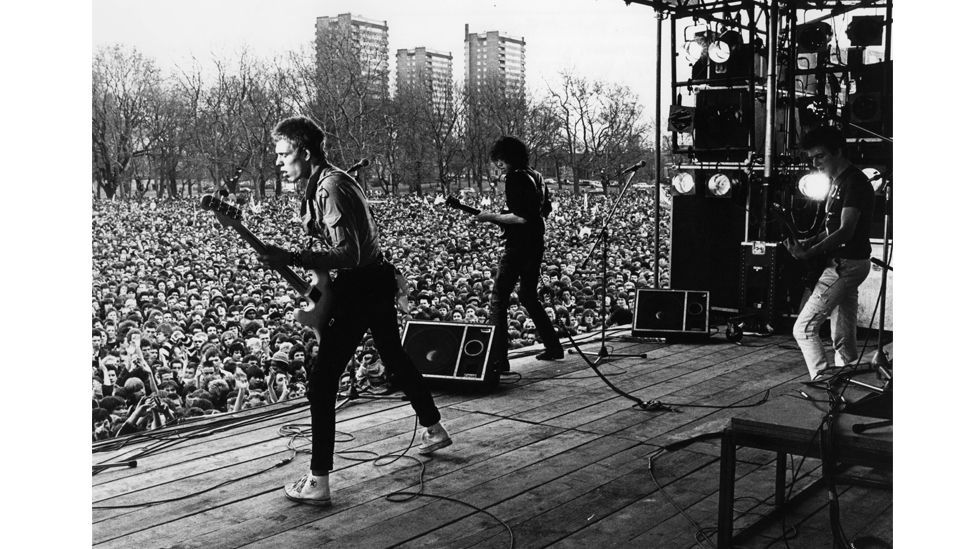P
Protest marches; bigots emboldened in the mainstream; institutional racism and exploitative policies going apparently unchecked… these themes sound distinctly contemporary in 2020, but they’re also undeniably deep-rooted. A new documentary film, White Riot, highlights the 1970s inception of Britain’s Rock Against Racism (RAR) movement, and its ground-breaking carnival event held on 30 April 1978: where a crowd of around 100,000 anti-fascists would march the seven miles from Trafalgar Square in central London to a live concert at Victoria Park in east London, through a stronghold of violent fascist party the National Front.
More like this:
– The birth of Black is Beautiful
– Facing up to Britain’s murky past
– Why are statues so powerful?
Between 1976 and 1982, RAR harnessed creative energies and diverse youth culture, organised live tours, published a highly influential fanzine, TemporaryHoardings, released music, and arguably proved instrumental in trouncing National Front support, at the ballot box and beyond. The movement’s manifesto, written by David Widgery in 1976, was rousing: “We want rebel music, street music. Music that breaks down people’s fear of one another. Crisis music. Now music. Music that knows who the real enemy is. Rock Against Racism. LOVE MUSIC HATE RACISM.”





